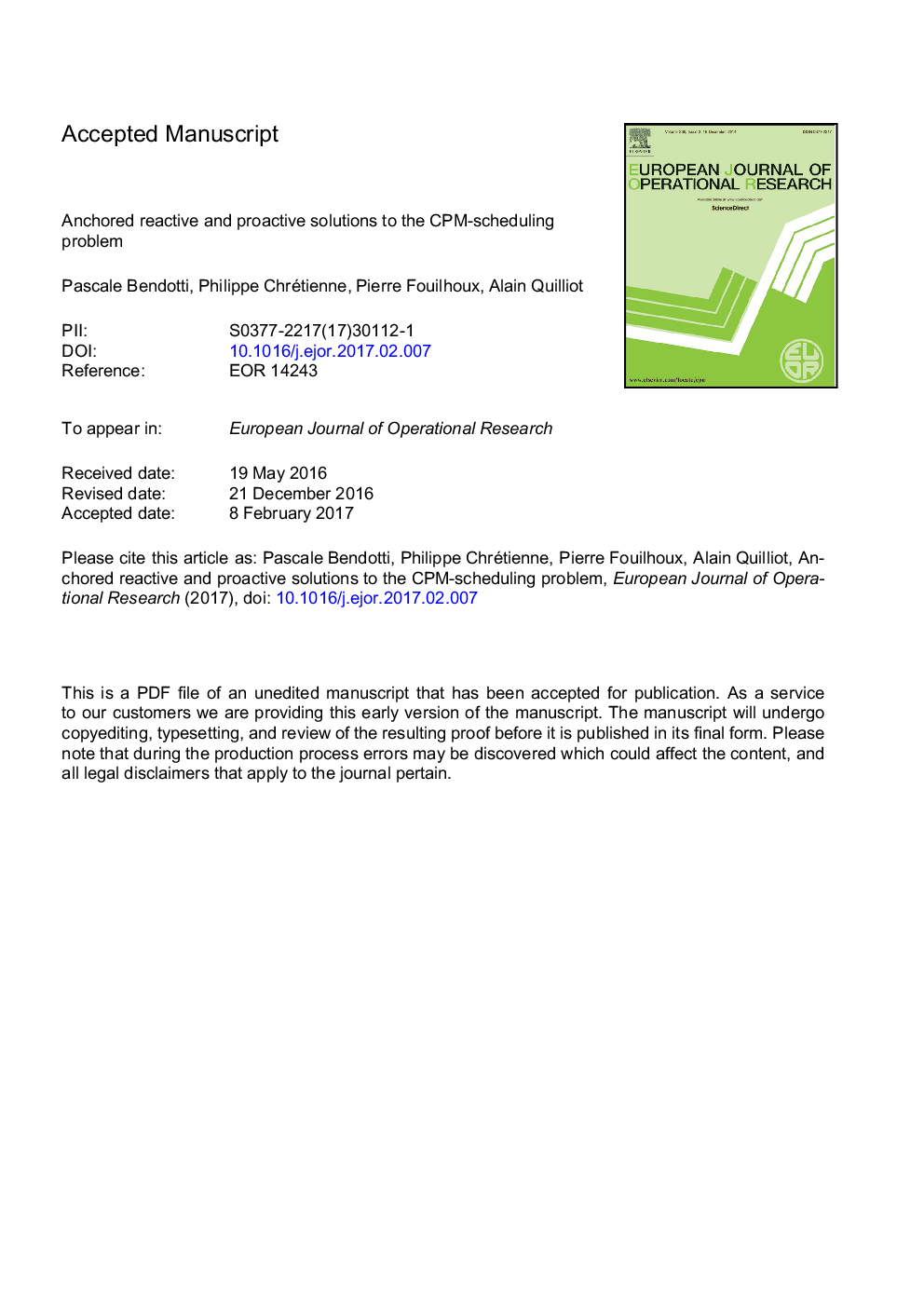| Article ID | Journal | Published Year | Pages | File Type |
|---|---|---|---|---|
| 4959540 | European Journal of Operational Research | 2017 | 27 Pages |
Abstract
In a combinatorial optimization problem under uncertainty, it is never the case that the real instance is exactly the baseline instance that has been solved earlier. The anchorage level is the number of individual decisions with the same value in the solutions of the baseline and the real instances. We consider the case of CPM-scheduling with simple precedence constraints when the job durations of the real instance may be different than those of the baseline instance. We show that, given a solution of the baseline instance, computing a reactive solution of the real instance with a maximum anchorage level is a polynomial problem. This maximum level is called the anchorage strength of the baseline solution with respect to the real instance. We also prove that this latter problem becomes NP-hard when the real schedule must satisfy time windows constraints. We finally consider the problem of finding a proactive solution of the baseline instance whose guaranteed anchorage strength is maximum with respect to a subset of real instances. When each real duration belongs to a known uncertainty interval, we show that such a proactive solution (possibly with a deadline constraint) can be polynomially computed.
Keywords
Related Topics
Physical Sciences and Engineering
Computer Science
Computer Science (General)
Authors
Pascale Bendotti, Philippe Chrétienne, Pierre Fouilhoux, Alain Quilliot,
